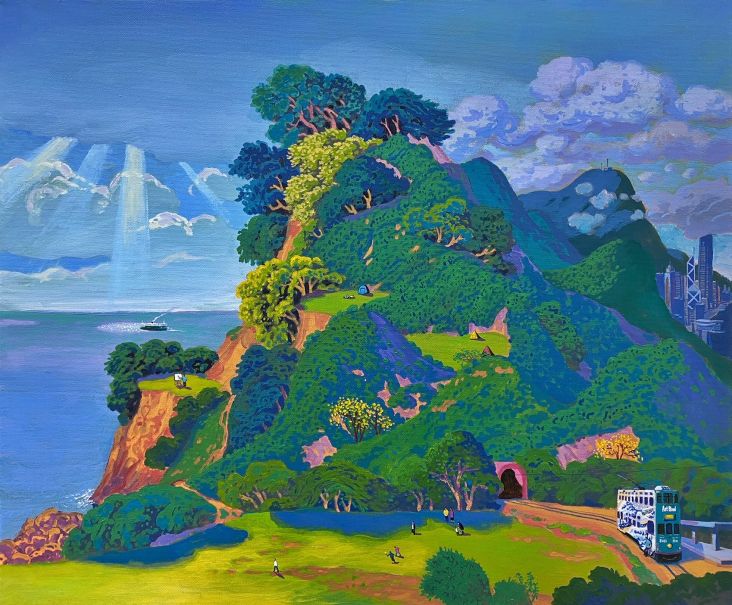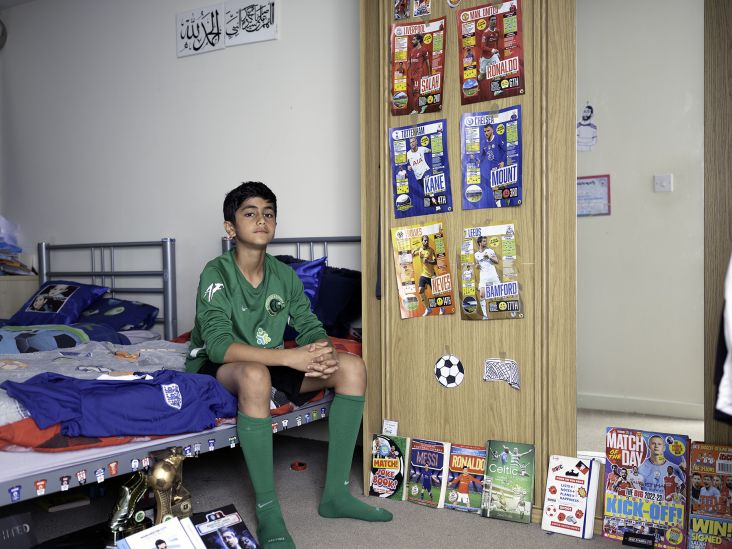Personal family history informs David Blandy's films tackling the legacy of war and empire
Legacy of empire, the atomic bomb and the climate crisis are all explored by artist David Blandy in his new exhibition, Atomic Light, at the John Hansard Gallery, part of the University of Southampton.
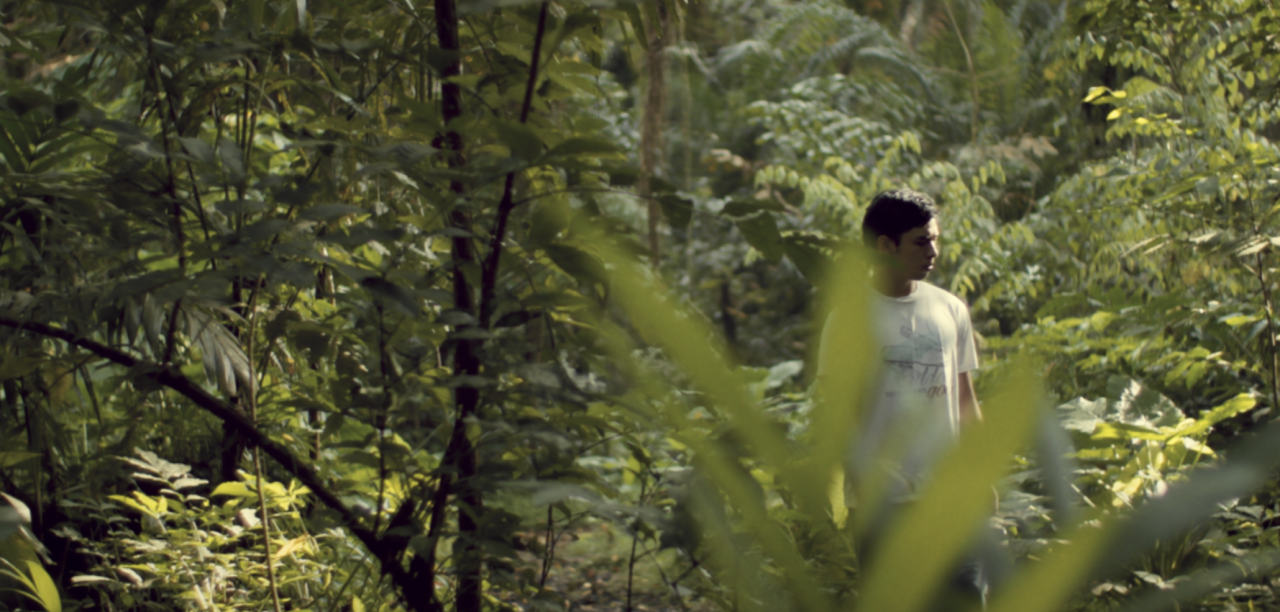
David Blandy, Empire of the Swamp, film still, 2023. © the Artist
It is a major solo show for the artist, who says that preparing for a show is a nerve-wracking experience. It is the culmination of more than four years of work, with a feeling of release and satisfaction in reaching the end of a long and intense period.
"I absolutely hate private views," he says frankly. Not because Blandy doesn't like talking to people but because of the heightened anxiety around how people will receive the work. With film, people sit in the dark, and you don't know what they are thinking about. It's unlike theatre, where you have clapping and can gauge how people are feeling."
The Brighton-based artist is displaying four new films and immersive installations, all connected through the story of Blandy's grandfather, a British soldier the Japanese captured in Singapore.
His grandfather, David Piper, was an art historian and director of the National Portrait Gallery, Fitzwilliam and Ashmolean museums. His book Trial By Battle was based on his experiences interning in Japanese POW camps for three years during the Second World War in Singapore and Taiwan. He was captured near Singapore, having been lost in the mangrove swamps. As a PoW, he almost starved to death and suffered from dysentery.

David Blandy, Sunspot, film still, 2023. © the Artist
"Suddenly, he woke up one, and there weren't any Japanese guards there anymore," Blandy says. This was due to the atomic bomb being dropped on 6 August 1945.
Controversially, Blandy's grandfather believed that the catastrophic bombing of Hiroshima saved his life. "The war ended absolutely abruptly, and he survived, so there is some merit to his thinking," says the artist.
But the catastrophic devastation is difficult to comprehend. The atomic bomb killed more than 140,000 people, and in the years that followed, many survivors suffered from leukaemia, cancer and other horrific side effects from radiation.
The two films The Edge of Forever and Empire of the Swamp are Blandy's artistic response to what he calls the "unprecedented, horrific military genocide, which was Hiroshima and Nagasaki." As the artist says: "It could be argued that I owe my existence to one of the most terrifying events of human history."
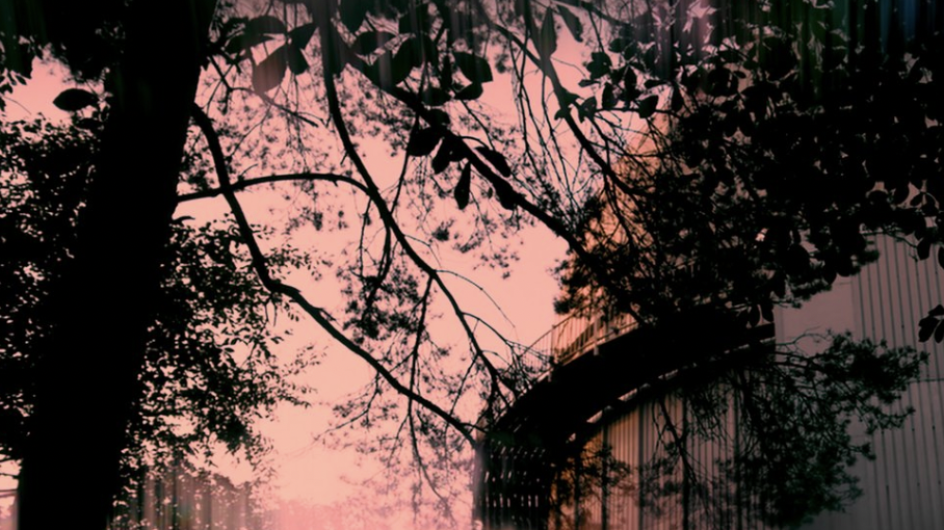
The Edge of Forever, 2022
The artist's role in society is to make sense of the unimaginable. We have Picasso's Guernica and Otto Dix's depictions of legless and disfigured German veterans from World War One. Blandy didn't talk to his grandfather about his wartime experiences. As is so often the case, many men who came home from the war found it impossible to reveal what they saw and suffered.
As Blandy puts it: "Art deals with the things left unsaid - a bubbling up of the subconscious of the community."
Most of what Blandy knows is from his grandfather, David Piper's published works. He wrote a novel and kept a diary as a prisoner of war, which Piper's wife published.
"I only started paying attention when I was 14 after my grandfather died. I was reading his texts, and it had a profound effect on me, how I felt about myself and my own existence."
Blandy's work straddles performance, video, digital and analogue. Research is central to his practice, from working on historical texts to academic archives, archaeology and ecological theory.
The artist's process starts with a story, problem or idea – something he finds complicated or irresolvable.
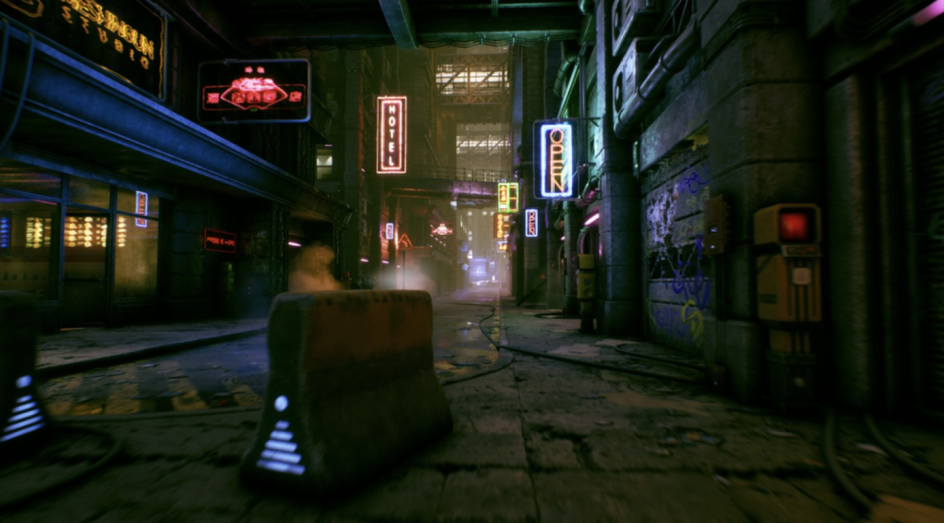
Androids Dream, 2022
"It's not a simple yes or no answer. It's something I'm obsessed with, and I start looking at history, theory, and popular culture, and then I bring it all together in a series of images in my head as a film. Once that stream of images takes form, I start to write a script which ties together, and I reign in the wild associations that have been made and make it understandable."
In The Edge of Forever, the film centres around two children seeking to unravel the mysteries of a damaged world in a landscape loaded with symbolism. Their journey begins at Cuckmere Haven, Sussex, with its cliffs formed from the remains of plankton from 100 million years ago, continues to a Cold War era observatory and concludes with their visions of the cosmos. It questions war and its link with environmental destruction.
"There were so many angles to this – it wasn't just empire, environment and legacy. Nitrates are used to fertilise the soil and also to create weapons of war."
Empire of the Swamp, written by Singaporean playwright Joel Tan, is a fable of nature and the repercussions of colonialism. As Blandy explains, this was very much a collaborative association with Tan. It features a man wandering through the swamps of Singapore and shows a conversation between a crocodile and the soul of an English soldier. The link between the legacy of empire and how the war has impacted the environment is woven into the film.
The Edge of Forever (2022) is a new video work that will premiere at Towner that centres on two questing children seeking to unravel the mysteries of a damaged world in a landscape loaded with symbolism.
Archival footage is used in Sunspot, where two Observatories both detect the same sun on the day an atomic sun was made on earth; the Hiroshima bomb and its terrible side effects from the radiation. Similarly, in Soil, Sinew & Bone, using footage from Screen Archive South East, a history of war and a history of agriculture are mirrored, the fertile earth of phosphates and nitrates reflected into weapons of war.
The discussion around empire and British involvement in the slave trade is growing apace. It's hard to ignore for today's artists like Blandy.
"I don't think we can move on without actually taking stock of where we are. There is a lot of conversation around empire."
David Blandy's exhibition Atomic Lights is currently on show at John Hansard Gallery, part of the University of Southampton, and will run until 6 May 2023.





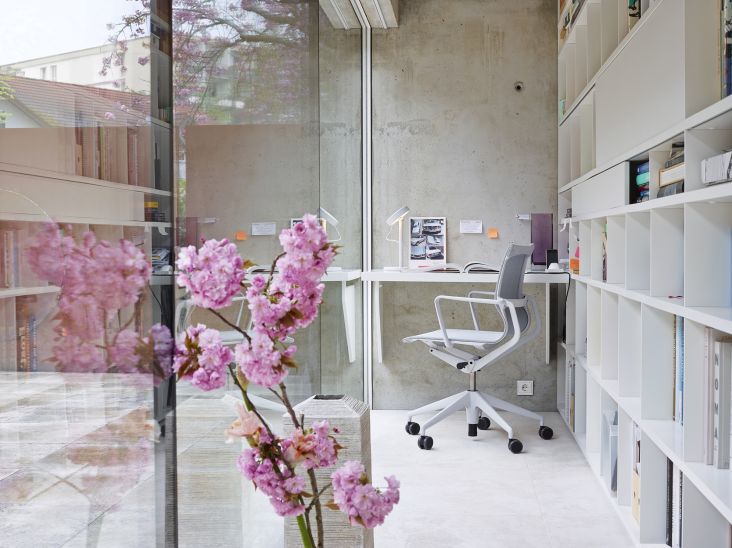
 using <a href="https://www.ohnotype.co/fonts/obviously" target="_blank">Obviously</a> by Oh No Type Co., Art Director, Brand & Creative—Spotify](https://www.creativeboom.com/upload/articles/6e/6ed31eddc26fa563f213fc76d6993dab9231ffe4_732.jpg)
 by Tüpokompanii](https://www.creativeboom.com/upload/articles/58/58684538770fb5b428dc1882f7a732f153500153_732.jpg)







